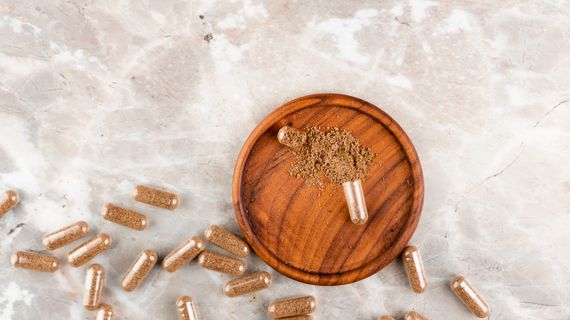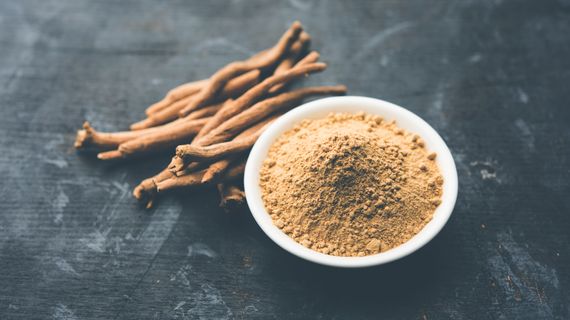- The average dietary intake of omega‑3s in Central Europeans does not even cover half of the recommended levels.
- This is why omega‑3 supplements are among the most popular dietary supplements on the market.
- However, there can be significant differences between products, affecting both the usability and the quality of the oil.
Fish oil is one of the richest sources of omega‑3 unsaturated fatty acids. These contribute to a healthy heart, improved eyesight and have a positive effect on brain function when dosed appropriately.
Less than half of the recommended intake of omega‑3 in the diet of Europeans
The European Food Safety Authority (EFSA) recommends a daily intake for adults in the range of 250‑500 mg EPA+DHA. However, findings from Europe show that the average daily intake in the young adult population is less than 100 mg per day. Regular consumption of oily marine fish is the best solution. The American Heart Association recommends eating 2 portions (about 100 g) of oily seafood per week, while the EFSA recommends 1‑2 portions per week.
An alternative may be to take dietary supplements containing omega‑3 unsaturated fatty acids. These supplements are a source of fish oil with high levels of EPA and DHA, which, when sufficiently dosed, have a direct effect on heart, brain and eye health.
Fish oil and its forms in dietary supplements
Omega‑3 fatty acids (in this case, EPA and DHA) can be found in free fatty acid form, but are not sold as such because they are unstable and prone to oxidation.
There are 3 common forms of omega‑3 fatty acids on the market:
- Ethyl esters (EE) - omega‑3 fatty acids are concentrated from fish oil by reacting with ethanol (alcohol) to form ethyl esters.
- Re‑esterified triglycerides (TG) - ethyl esters can be reversed into the triglyceride form, in which omega‑3s otherwise occur naturally.
- Phospholipids (PL) - some specific organisms are sources of omega‑3 fatty acids in the form of phospholipids. These fatty acids, well known as krill oil, have different properties from the forms mentioned above and will be discussed in the next section of the article.
You may now be wondering how you can tell which form of omega‑3 fatty acids are present on product packaging. Admittedly, this can sometimes be tricky.
- Triglycerides and phospholipids are the natural form of omega‑3 fatty acids in fish oil, so there is no need to list them on the product label.
- Ethyl esters do not occur naturally as a form of omega‑3 fatty acids, so if this form is used in a product, it should be explicitly stated on the label.

Ethyl esters vs. triglycerides: which form is better?
Triglycerides (TGs) of omega‑3 fatty acids are digested in the same way as normal dietary fats by gastric and pancreatic lipases, whereas ethyl esters (EEs) are processed differently by carboxylester hydrolases, whose activity is also increased by the simultaneous consumption of fats. There is much debate as to whether ethyl esters or triglycerides are the more absorbable form for the human body. Indeed, some studies have observed that omega‑3 unsaturated fatty acids in the form of triglycerides are better utilised by the body, but other research does not confirm this.
It seems likely that in the short term, triglycerides are better (faster) absorbed by the body, but with long‑term use, the differences between the two forms diminish.
More information to help you choose an omega‑3 supplement
1. Total amount of omega‑3 fatty acids
In addition to the forms of omega‑3 unsaturated fatty acids contained in fish oil, the amount of omega‑3 unsaturated fatty acids in a single capsule also varies. The following ratios are most commonly found on the market:
- Variant 18/12 - the capsule contains 1000 mg of fish oil, which is a source of 180 mg of EPA and 120 mg of DHA (total 300 mg of EPA + DHA)
- Variant 33/22 - the capsule contains 1000 mg of fish oil, which is a source of 330 mg EPA and 220 mg DHA (total 550 mg EPA + DHA)
In principle, however, the ratios may differ depending on the individual manufacturer. Recall that EFSA and WHO recommend a baseline daily intake of at least 250‑500 mg EPA+DHA per day.
2. Antioxidant content
Although both the ethyl ester and triglyceride forms are more stable compared to free fatty acids, the addition of antioxidants in capsules is advisable to protect omega‑3s from air oxidation. The most commonly used antioxidant for this purpose is vitamin E:
- d‑alpha‑tocopherol - also known as the "natural" form of vitamin E
- dl‑alpha‑tocopherol - often referred to as the synthetic form of vitamin E
Krill oil contains astaxanthin as an antioxidant, which gives the capsule its characteristic colour. Some manufacturers also use olive oil, which contains polyphenols with an antioxidant effect.
3. Observe the TOTOX parameter
The TOTOX (total oxidation value) parameter describes the oxidation rate of fats and oils. According to some experts, TOTOX literally tells you everything about the quality of oils and fats. The lower the TOTOX value, the lower the oxidation and the better the quality of the oil. Fish oils on the market should not exceed a TOTOX value of 26. Very high quality oils have TOTOX values of less than 5‑10.
Krill oil as a source of omega‑3 in the form of phospholipids
Krill oil is an alternative to conventional fish oils. It is an omega‑3 unsaturated fatty acid derived from shellfish. The main difference is the form of omega‑3 unsaturated fatty acids present. While fish oil is a natural source of triglycerides (or modified ethyl esters), krill oil contains up to 65% omega‑3 unsaturated fatty acids in the form of phospholipids, which some studies suggest may facilitate their absorption.
Krill oil also contains the natural antioxidant astaxanthin, which gives the capsules their deep red colour. Its presence is very important for the preservation of EPA + DHA, as phospholipids are even more susceptible to oxidation than triglycerides.
However, along with the higher price, the lower content of omega‑3 unsaturated fatty acids must also be taken into account. For example, with Reflex Krill Oil, one capsule is only a source of approximately 92 mg of EPA + DHA, which is about four times less than Vilgain Omega‑3, which contains 500 mg of EPA + DHA in the form of triglycerides in one capsule.
Omega‑3 Fish Oil 300 EPA + 200 DHA

Bottom line
Omega‑3 fatty acids in the form of fish oil are among the most popular dietary supplements on the market. Since the intake of omega‑3s in our population is less than half of what is recommended by nutritional authorities, there is considerable justification for their use. In dietary supplements, omega‑3s are most commonly found in the form of ethyl esters and triglycerides. Some studies suggest that triglycerides have a faster and higher utilisation rate than ethyl esters.
In addition to the form of omega‑3, it is also useful to consider the concentration of omega‑3 fatty acids, the use of an antioxidant (protective) agent, and the TOTOX parameter, which indicates the quality of the oil in the capsule.


















